How to Celebrate Dongzhi Festival | Chinese Activities for Kids
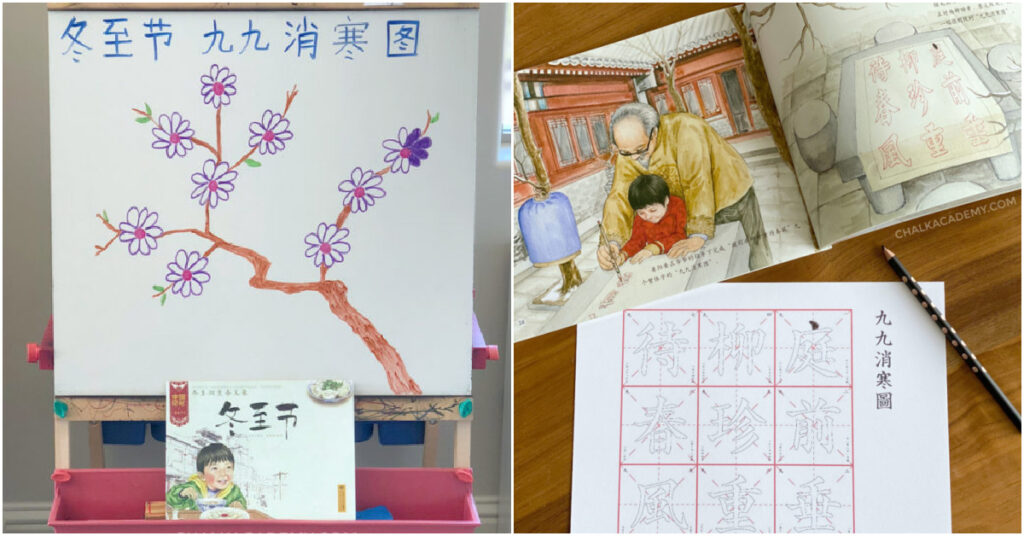
Happy Winter Solstice / 冬至快乐 / 冬至快樂!It’s time to take a break from Christmas activities to learn about the winter solstice in Chinese culture. I’m excited to share how to celebrate Chinese Dongzhi Festival activities with kids and students.
Since I’m teaching my kids Chinese as a second language at home, we try to make it fun and meaningful. I hope your family and school can enjoy these Dongzhi Festival activities!
What is Dongzhi Festival 冬至节 / 冬至節?
The Dongzhi Festival is one of the major ancient Chinese holidays that began over 2000 years ago. It marks the start of the “Nine Nines of Winter.” If you fancy math, this means nine periods of nine days each, after which winter ends and spring begins.
In Chinese, Dongzhi Festival translates to 冬至节 / 冬至節 (dōngzhì jié) in simplified Chinese, traditional Chinese, and Pinyin respectively.
When is the Dongzhi Festival celebrated in 2023?
Dongzhi Festival is celebrated every winter solstice, the shortest day and longest night of the year in the northern hemisphere.
This year, the Dongzhi Festival falls on Friday, December 22, 2023.
How do Chinese people celebrate the Dongzhi Festival?
Throughout China and Taiwan, the winter solstice is celebrated mainly by older generations by spending time with family.
To keep busy during the cold days and count down to the arrival of spring, ancient Chinese enjoy “Nine Nines of Winter” activities for the Dongzhi Festival:
Most of all, people enjoy eating traditional foods such as the following:
- 饺子 / 餃子 (jiǎozi / dumplings)
- 姜母鸭 / 姜母鴨 (jiāng mǔ yā /ginger duck hot pot)
- 红豆糯米饭 / 紅豆糯米飯 (hóngdòu nuòmǐ fàn / red bean glutinous rice)
- 汤圆 / 湯圓 (tāngyuán / sticky rice balls)
In contrast to holidays like Chinese New Year and the Mid-Autumn Festival, the Dongzhi Festival is relatively low-key. Younger generations are also less likely to celebrate the Dongzhi Festival as traditions fade.
冬至节 / 冬至節 Dongzhi Festival Activities for Kids
Here are fun and simple activities to celebrate and learn about the Dongzhi Festival with kids. If you’re raising bilingual kids, it’s a great chance to encourage kids to speak Chinese.
Watch Dongzhi Festival videos in English and Chinese
To learn about the Dongzhi Festival traditions in English, the “Seasons of China: Winter Solstice” video gives a helpful summary.
Ah Boy is a Singaporean cartoon, and this cute episode is all about how to celebrate Dongzhi Festival in Mandarin Chinese. 庆冬至:吃汤圆人团圆!
Read a Chinese Dongzhi Festival Book
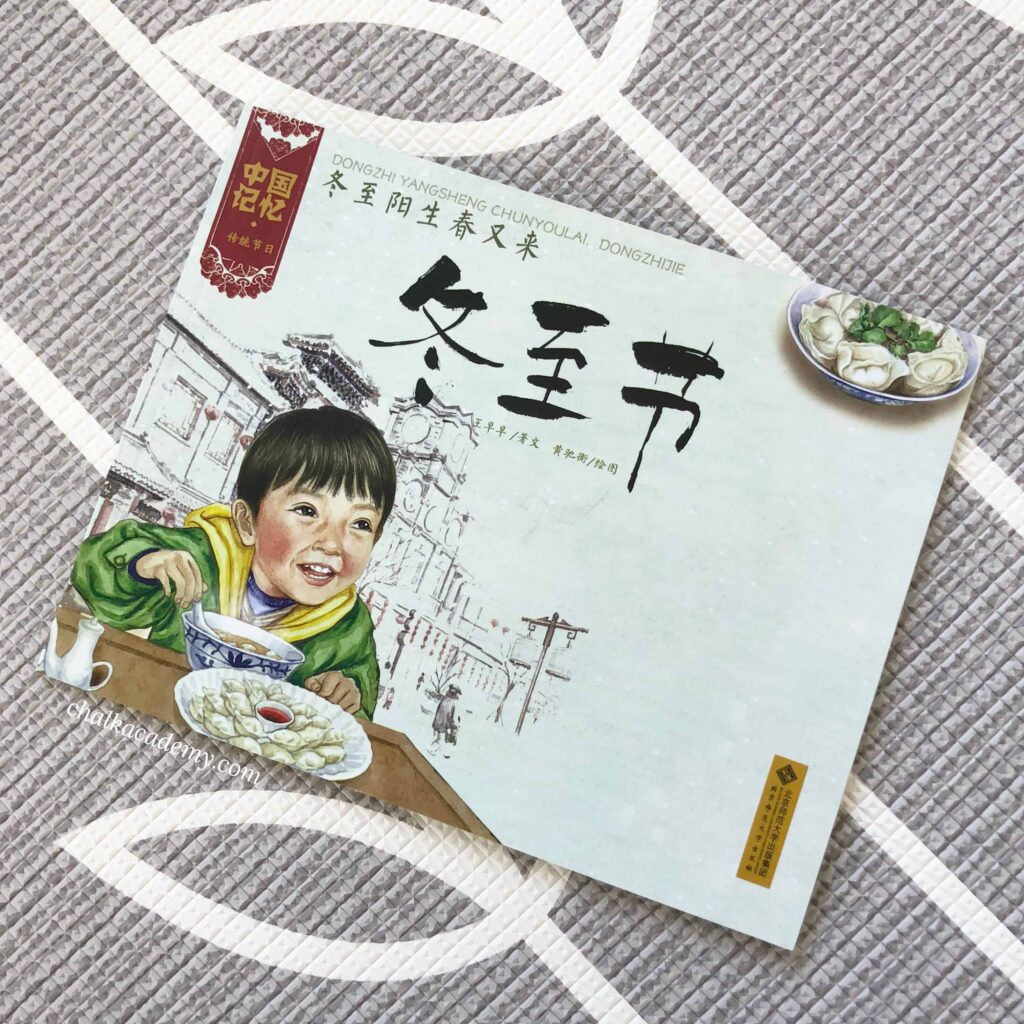
We love this 冬至节 / 冬至節 book with amazing, realistic illustrations!
A little boy talks to his grandparents about the history of the winter solstice. Throughout the book, the child learns how the family celebrates the Dongzhi Festival, such as cooking Tanyuan and doing 九九消寒图 / 九九消寒圖 activities.
Enjoy the Mandarin narration from Luka Reading Robot or listen on Ximalaya.
This beautiful book is part of the Chinese Festivals Collection 中国记忆(传统节日共12册) in simplified and traditional Chinese.
Read Chinese books about winter
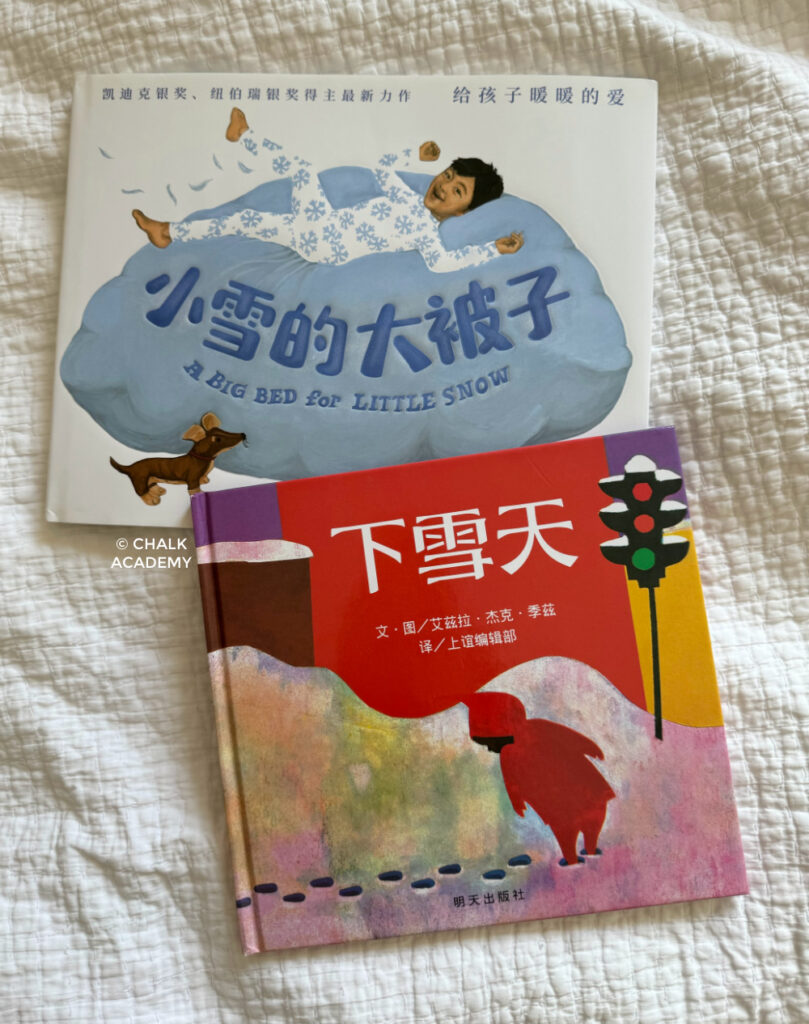
Books are a wonderful way to explore the magic of winter in Chinese. Here are two of my children’s favorite stories that can be narrated in Mandarin with Luka Reading Robot.
A Big Bed For Little Snow 小雪的大被子
The Snowy Day 下雪天
Related: 10 Best Chinese Mid-Autumn Festival Books for Kids
Learn the Dongzhi Festival song 九九消寒歌 in Chinese
The “Nines of Winter” is beautifully described in a famous Dongzhi Festival song. In Chinese, the poetic song is called 九九消寒歌 (jiǔjiǔ xiāo hán gē), also known as 数九歌 / 數九歌 (shǔ jiǔ gē).
If you’re celebrating Dongzhi Festival at school, this song is a great activity for kids of all ages. Here are the lyrics to this famous Chinese folk song in simplified Chinese, traditional Chinese (if different), and Hanyu Pinyin.
一九二九不出手 (Yījiǔ'èrjiǔ bù chūshǒu) 三九四九冰上走 (Sānjiǔsìjiǔ bīng shàng zǒu) 五九六九沿河看柳 (Wǔjiǔliùjiǔ yán hé kàn liǔ) 七九河开八九雁来 / 七九河開八九雁來 (Qījiǔ hé kāi bājiǔ yànlái) 九九加一九,耕牛遍地走 (Jiǔjiǔ jiā yījiǔ, gēng niú biàndì zǒu)
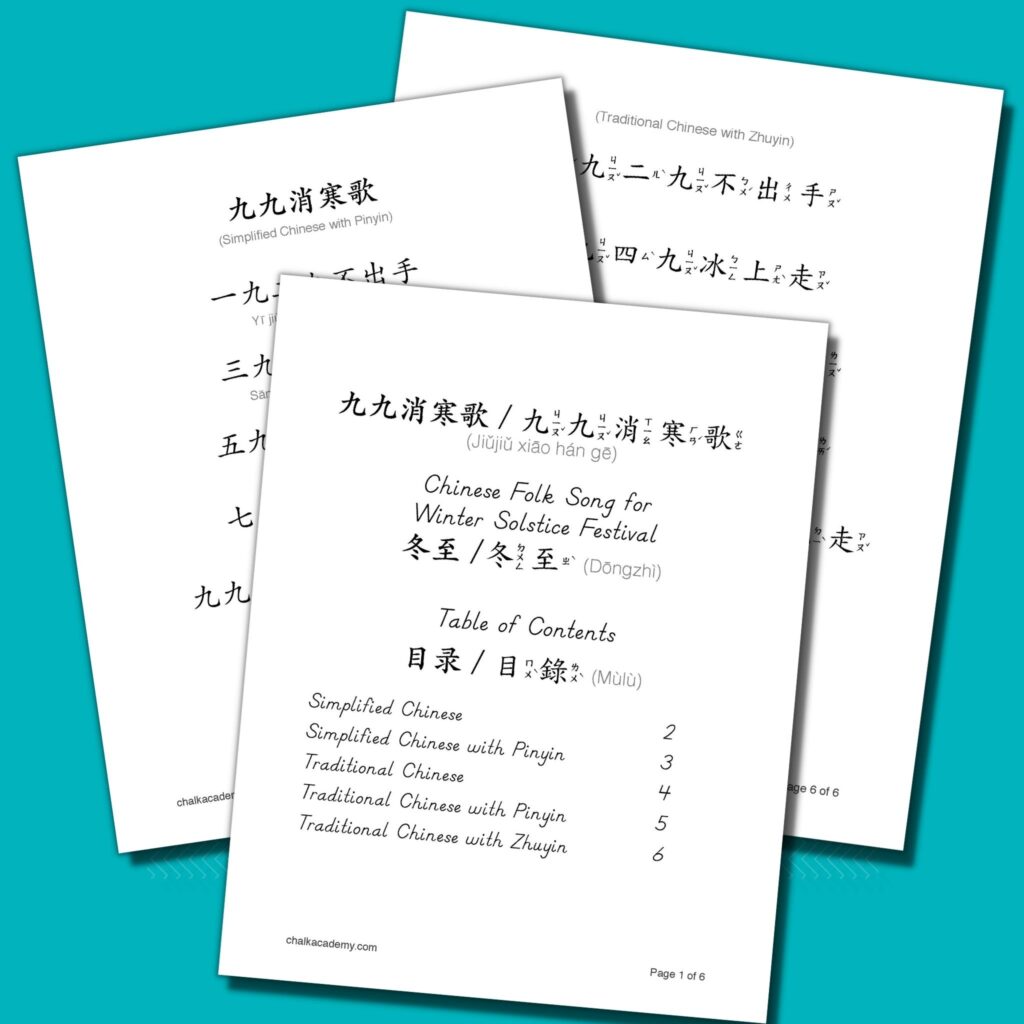
Click the button below to download the lyrics in Chinese, Pinyin, and English.
You can use the Youdao Dictionary Pen to scan and narrate the simplified and traditional Chinese characters or listen to the poem on YouTube here.
九九消寒图 / 九九消寒圖 Chinese Calligraphy
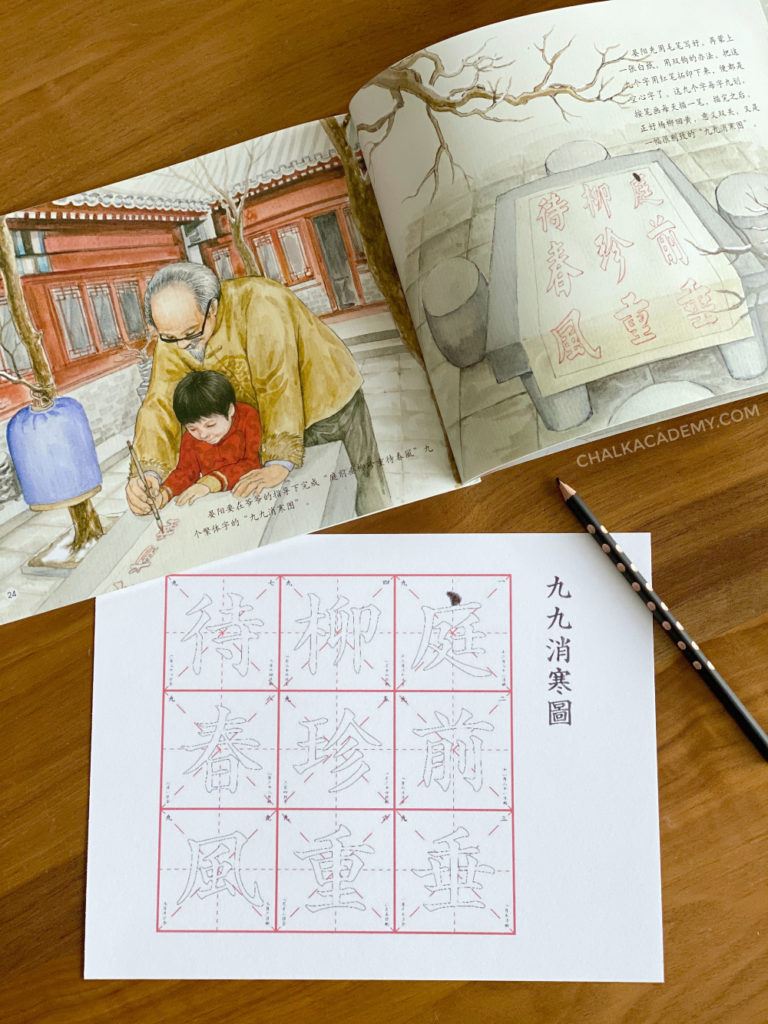
In Chinese, 九九消寒图 / 九九消寒圖 (jiǔjiǔ xiāo hán tú) translates to Nine Nines of Passing the Cold of Winter.
The outline of nine traditional Chinese characters with nine strokes each is drawn for this coloring activity. To mark each passing day, color in one stroke.
By the time the calligraphy has been colored completely, winter will be over!
This Dongzhi Festival activity is from an inactive website, but you can download a copy of the PDF here.
九九消寒图 / 九九消寒圖 Peach Blossom Flowers
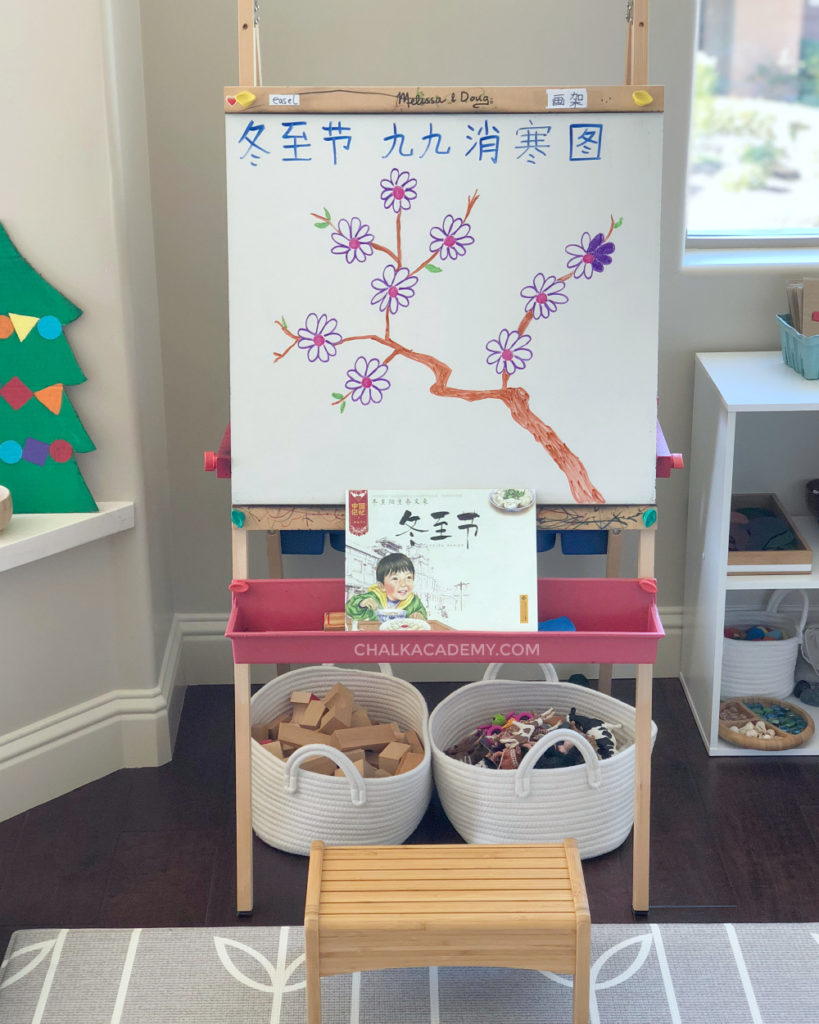
Here’s an artistic activity to celebrate the Dongzhi Festival! Count down to spring by drawing a peach blossom branch with nine flowers.
Each flower has nine petals, and one petal is colored each passing day.
One winter, I prepared this Dongzhi Festival activity on our easel to capture my children’s attention. Later, we copied the flowers onto paper as my kids wanted to use the easel to draw other things.
The 冬至节 / 冬至節 Dongzhi Festival book gives an overview of the different countdown activities, including the flower drawing.

What is your favorite way to celebrate Dongzhi Festival activities with kids?
What are your family’s favorite traditions and activities for the Dongzhi Festival? Please share in the comments below. We’d love to learn from your experience.
More Chinese Winter Solstice activities for kids
Have fun celebrating Dongzhi Festival activities!
Happy Winter Solstice! 冬至快乐 / 冬至快樂!
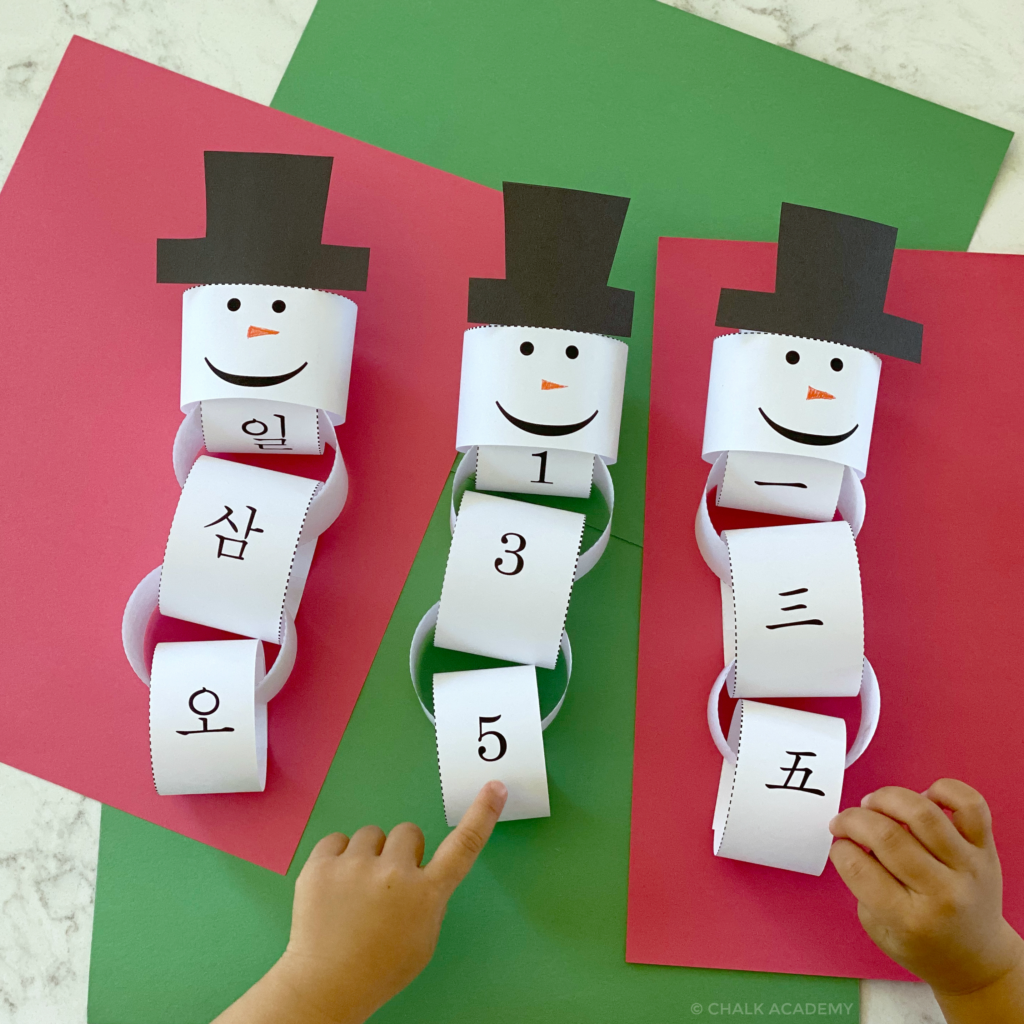
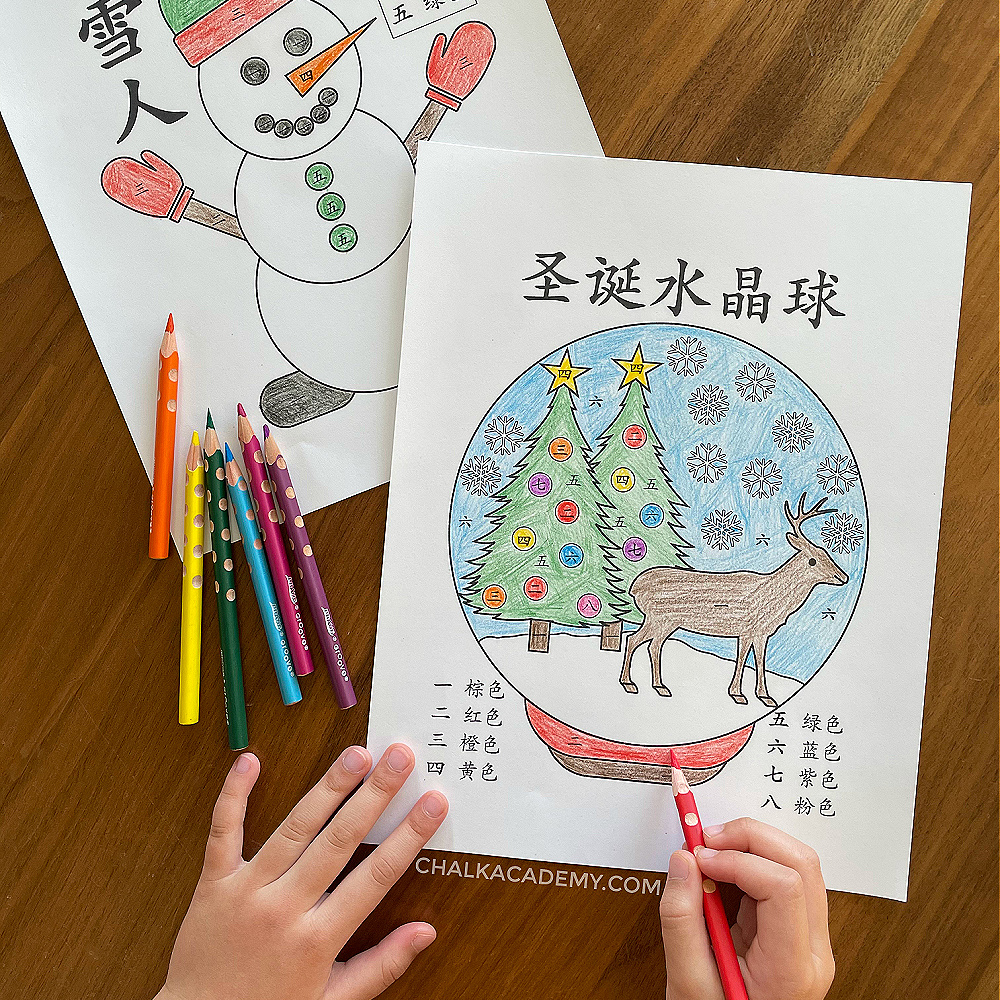
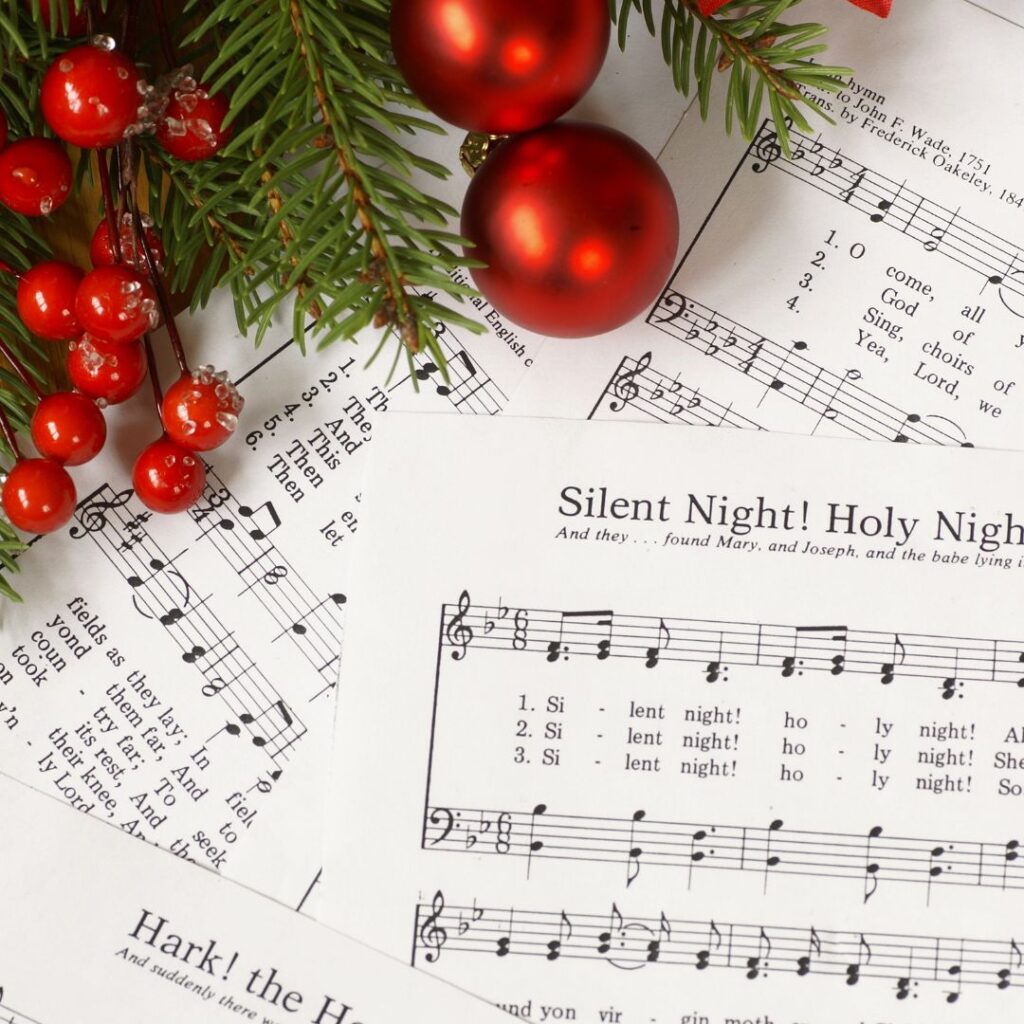
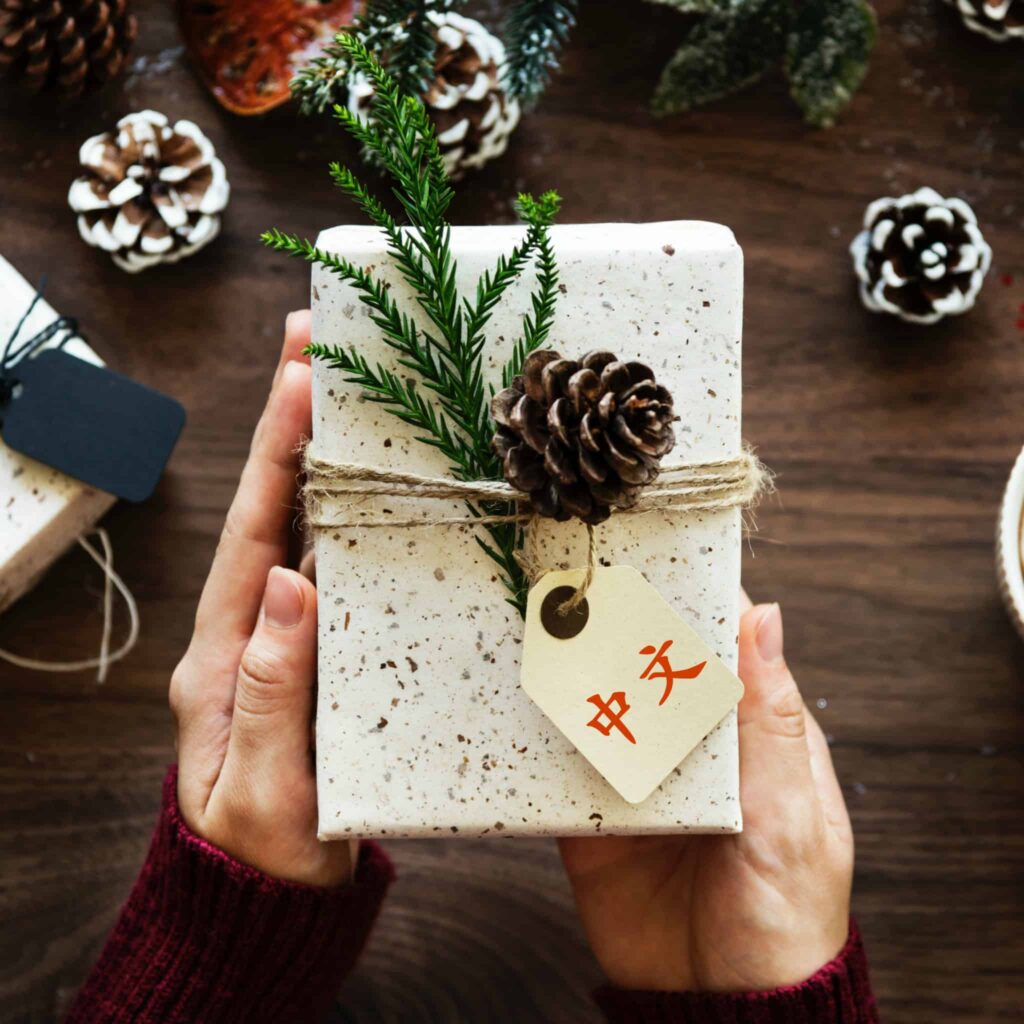
Thank you for sharing all these resources! I am a librarian and making a winter solstice celebrations book/ activity list and this is such a valuable post. I will make sure to credit you and link to this post!
Hi Grace, thanks so much!
Do you know of any books about the Dongzhi Festival that are translated into English for children?
I haven’t seen any yet, but I’ve added a YouTube video about Dongzhi Festival in English in case it helps!